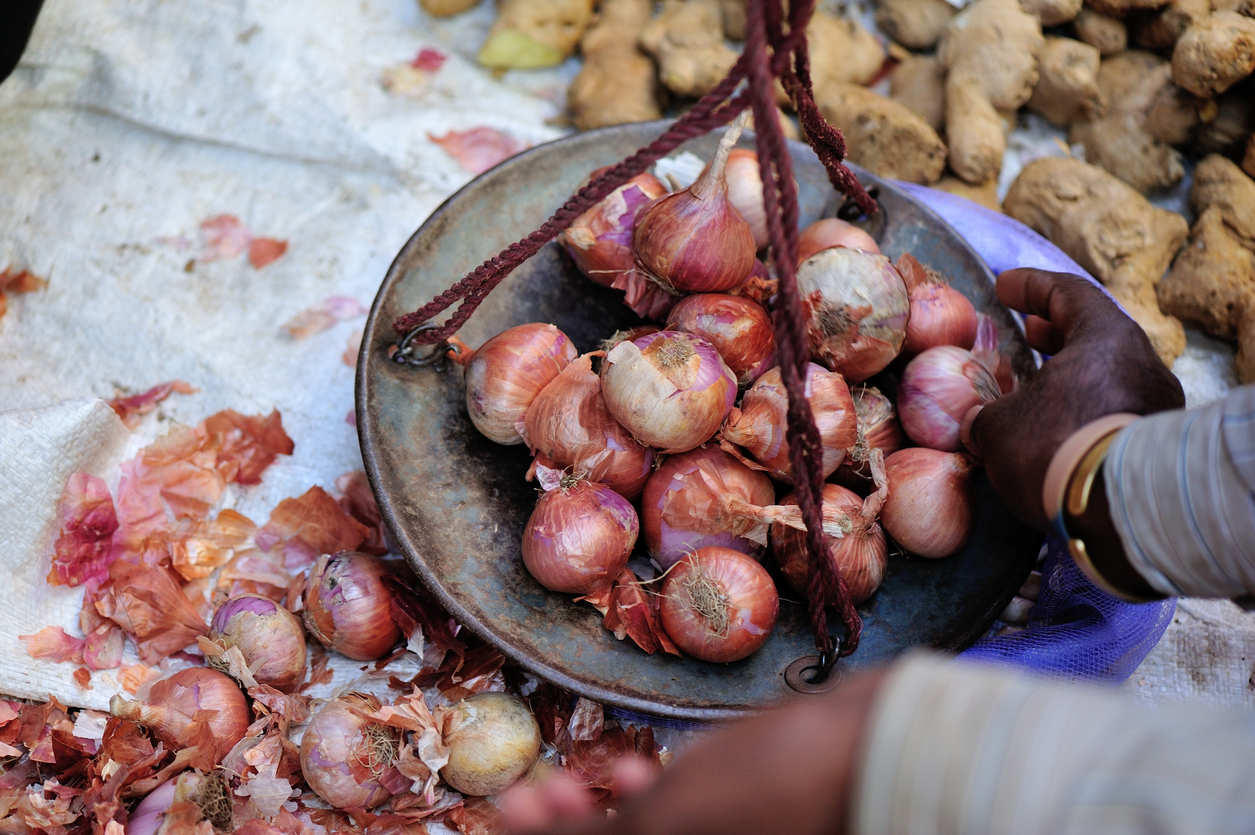
Onion prices: A bitter political, economic fallout stares govt in face

The high prices of the onion have come at a time when the government is determined to convert the troika of its ordinances involving agricultural trade reforms into Bills and then enact laws.
To stem the rising prices, the government has already banned the export of the bulb, at a time when the onion demand in the international market has surged. Bangladesh has been quick to urge the Indian government to lift the export ban.
The indications are that the high prices of the kitchen staple will continue till November, barring a few days of a slight fall, till the Maharashtra farmers get back with the new crop.
The Lok Sabha on Thursday passed two bills related to “reforms” in agriculture marketing after a debate. Union Agriculture Minister Narendra Singh Tomar said the legislations will “end licence raj” and farmers would be free to sell their agricultural produce according to their choice. The bills will now be tabled in Rajya Sabha.
BJP’s oldest ally Shiromani Akali Dal has withdrawn its lone Union minister Harsimrat Kaur Badal from the Modi cabinet. On Friday, Dushyant Chautala, another BJP ally in Haryana led by CM Manohar Lal Khattar is said to be under pressure to act on the lines of Harsimrat Kaur Badal.
Related news: Sharad Pawar urges Centre to rethink ban on the export of onions
The three bills are: The Farmers’ Produce Trade and Commerce (Promotion and Facilitation) Bill, 2020 and the Farmers (Empowerment and Protection) Agreement and the Essential Commodities (Amendment) Bill. The crux of these bills, as per the government, is that their rollout would usher in a transition of India’s agri-marketing as signs of a weakening of the Agriculture Produce Marketing Committee (APMC) networks are now seen across major farm production centres, which may bolster bargaining strength of farmers.
On the ground, however, there are several factors at play, too:
* Between March and September, the average price of the bulb at Lasalgaon’s market in Maharashtra has gone up by almost 100%. Prices at the markets in Niphad taluka of Nashik district, which were in the range of Rs 1,500 per quintal in March, have since appreciated to Rs 3,000. At retail markets, onion is now trading between Rs 35-40 per kg as against the Rs 25-30 per kg in June.
* The exceptionally heavy in August led to a near-complete washout of the almost market-ready onion crop in Karnataka which was to hit the markets early in September. The rains have also wreaked havoc on the stored onions in Madhya Pradesh, Gujarat and parts of Maharashtra. At present, it is only the onion growers in Maharashtra who have stored up the produce which they harvested in March-April. The supply disruption is likely to continue till the new crop in Maharashtra hits the markets early November.
* Indian onions, normally shipped out countries in the Gulf, Sri Lanka and Bangladesh, have a year-round steady demand. However, demand from Sri Lanka, exporters say, has suddenly increased as the island nation has reported heavy destruction of their crop in the rains. The landed cost of Indian onions at Dubai port at this moment is around Rs 32-35 per kg which has led many exporters to increase their shipments from Nashik.
* Once the markets open for trade next week, a sharp fall in prices is expected in view of the export ban. However, traders feel the prices are again going to rise in a week or so as the overall supplies will remain stressed. The new crop, they say, will arrive only post November and with the demand expected to rise before the Dussehra festive season starts, prices will continue to remain bullish.
The political fall-out of high onion prices is hard to guess. Bihar elections are due later this year, and the government is wary of going to the electorate when the kitchen staple is costlier than usual.
Shetkari Sangathan, the farmer’s union started by legendary farmer’s leader Sharad Joshi, has started protests against the government move.
Related news: Nashik farmers teary-eyed as export ban cuts onion price
NCP chief Sharad Pawar had met Union Commerce Minister Piyush Goyal on September 15 and demanded that the Centre reconsider its “sudden” decision to ban the onion export.
The NCP chief told the minister that the export ban will “hurt” India’s image as a “reliable” supplier of the commodity in the international market.
In another tweet, Pawar said Goyal told him that the proposal to ban the export was moved by the Union Consumer Affairs Ministry based on the rising prices of the commodity.


